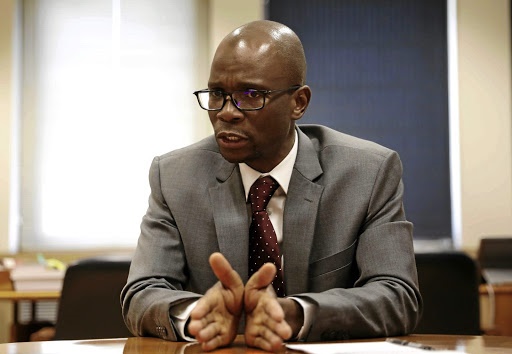
South Africa must urgently put in place reforms to reduce its debt-to-GDP ratio to a more sustainable level, according to a survey conducted by the Organisation for Economic Co-operation and Development (OECD). The organisation made several suggestions to get the economy going and increase revenue collection and reduce distortions.
Responding to the report, Deputy Finance Minister David Masondo said government’s finances were stretched as high debt levels remained and were expected to stabilise at 75.1% of the GDP by 2024. Masondo added that interest rate costs were the fastest-growing part of the budget, crowding out other crucial expenditure items.
He said:
“We are aware of the importance of a sustainable fiscal situation to manage the cost of borrowing. It is of paramount importance that we ensure the cost of borrowing does not raise this burden further.
“Debt service costs limit our capacity and our ability as government to spend on critical social priorities and programmes to alleviate the effects of the worst of the current crisis.”
READ: Between April and June, 648 000 jobs were created
The country’s economy is expected to see pre-pandemic growth levels by the end of this year, despite risks surrounding the Russia/Ukraine conflict that also pose a risk to global and domestic economic recovery. The OECD has predicted that the country’s economy would expand by 1.8% this year and 1.3% in 2023.
South Africa’s economy is expected to have contracted in the second quarter because of the flooding in KwaZulu-Natal and the heavy bout of load shedding in the past few weeks. Economic growth has been shored up by investment, commodity exports and household consumption that’s also seen 30-year lows.
READ: Analysts expect GDP rebound, but raise concerns about new benchmarking
Household expenditure is expected to continue to be boosted by government’s transfers to low-income earners. However, rising inflation has been eating into households’ disposable incomes. Inflation reached another 13-year high in July, surging to 7.8%. Core inflation was also expected to rise this year and in 2023. This will no doubt force the Reserve Bank – which has already shown aggression in dealing with inflation – to hike interest rates further.
The OECD found Africa’s most developed economy was not as productive and competitive as it should be. Not only was productivity low, but it was found to be declining because of a lack of required skills and inadequate education outcomes, which would result in lower standards of living.
The organisation’s acting chief economist, Álvaro Pereira, said when a country has low productivity, it was likely to negatively affect living standards:
However, the expected growth will not be accompanied by a growth in tax revenue. The organisation said tax reductions put in place by government have only benefitted high-income groups. It has recommended the raising of VAT – which it said was relatively low – as a way to increase tax revenue.
Acting director Isabell Koski said:
“To mitigate any potential adverse distributional effects and increase the political acceptability of further VAT reform, an increase in the standard VAT rate should be accompanied by increased transfers to low-income households.
“Reducing tax allowances, deductions and allowances would increase tax collections, restore the progressivity of the tax schedule and decrease income inequalities, which is currently one of the highest in the world. Wealth inequality is even higher than income inequality. Improving existing wealth transfer taxes along with proper taxation of the income sources can, over time, limit the intergenerational transmission of wealth and inequalities,” she said.
READ: Fired Sars execs reinstated after winning labour court battle
The OECD said government could make the R350 social relief of distress grant permanent and finance that through improving procurement procedures. It said this, and dealing with savings from inefficiencies in government, could offset the additional costs. This is despite National Treasury cautioning that making it permanent would be costly and have fiscal implications.
Koski added:
“As such, we think it could be made permanent because support for the unemployed is something that was missing before the crisis in South Africa. The cost is not very high. We estimate a basic grant of R350 per month, for instance, would imply additional spending of 0.8% of the GDP.”
The OECD flagged the underperformance of state-owned enterprises and the significant risks these placed on the fiscus.
Koski added that South Africa needed to establish effective governance of SOEs and set clear company objectives in terms of profitability expectations, cabinet structures and non-financial objectives. “Furthermore, tackling public funds leakages and corruption within public entities remains fundamental to restore public finances and confidence from citizens.”
READ: Money Makeover | When to use debt to expand your business
The regulatory barriers in many sectors are a hindrance to economic growth and that envisaged economic reforms are taking too long to implement.
“It’s very important that announced reforms are implemented. South Africa was a little slow in implementing reforms. It takes two or three years for announced reforms to be implemented.
“There are reforms announced in the management of SOEs and appointments of CFOs boards the financial rules. What is needed is a strong implementation so that the financial viability of SOEs is restored,” the OECD said.




 Publications
Publications
 Partners
Partners









